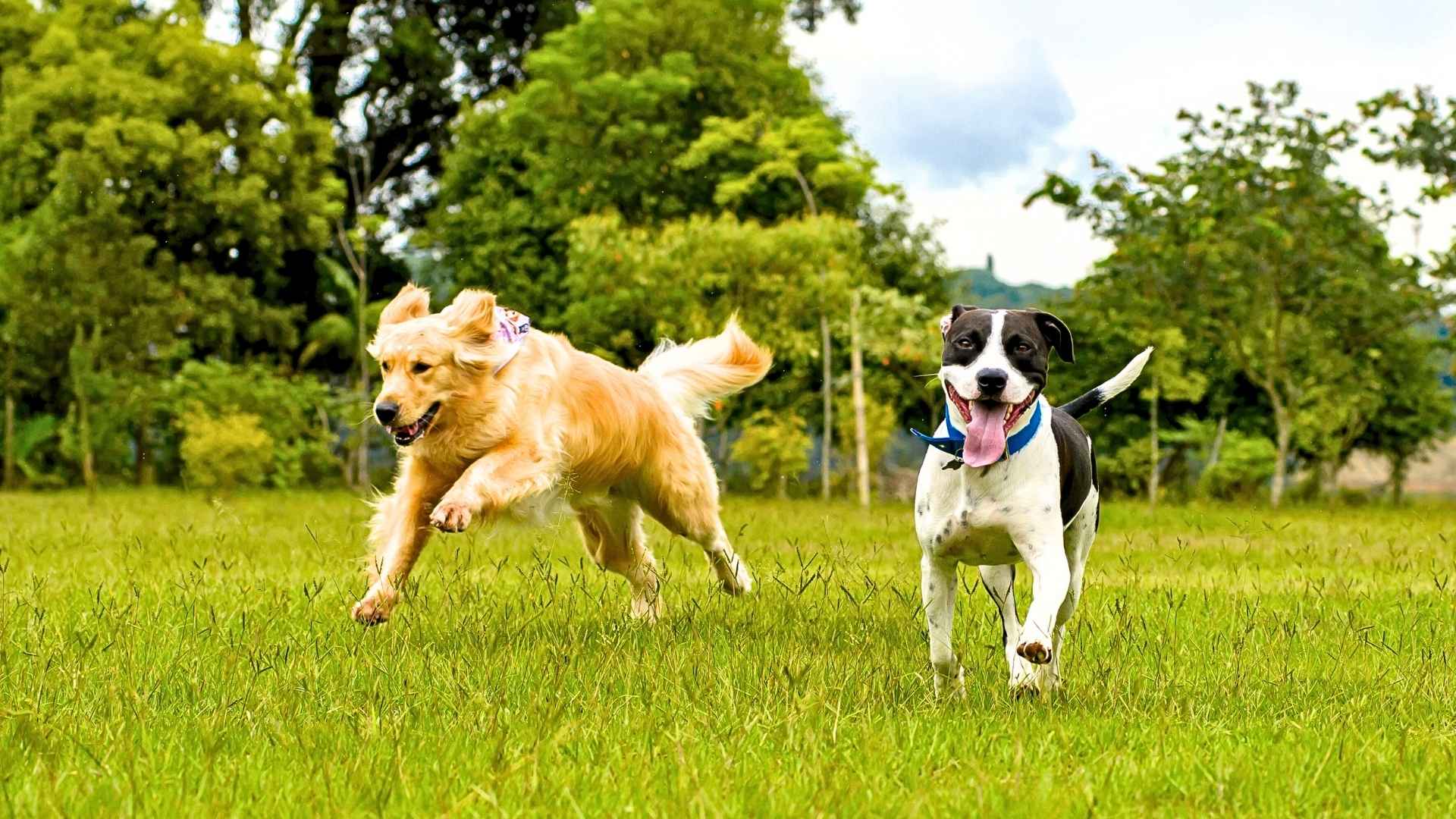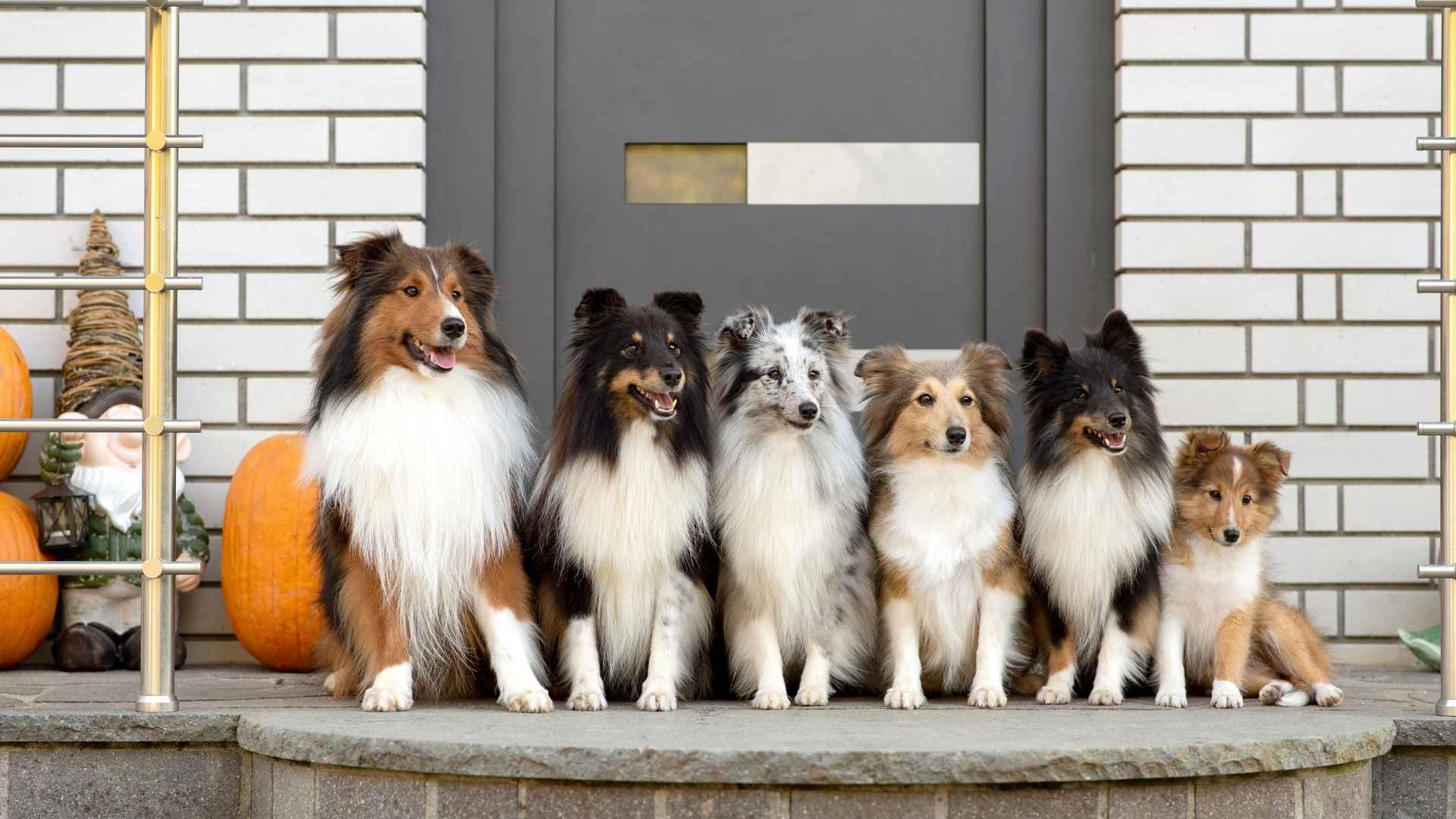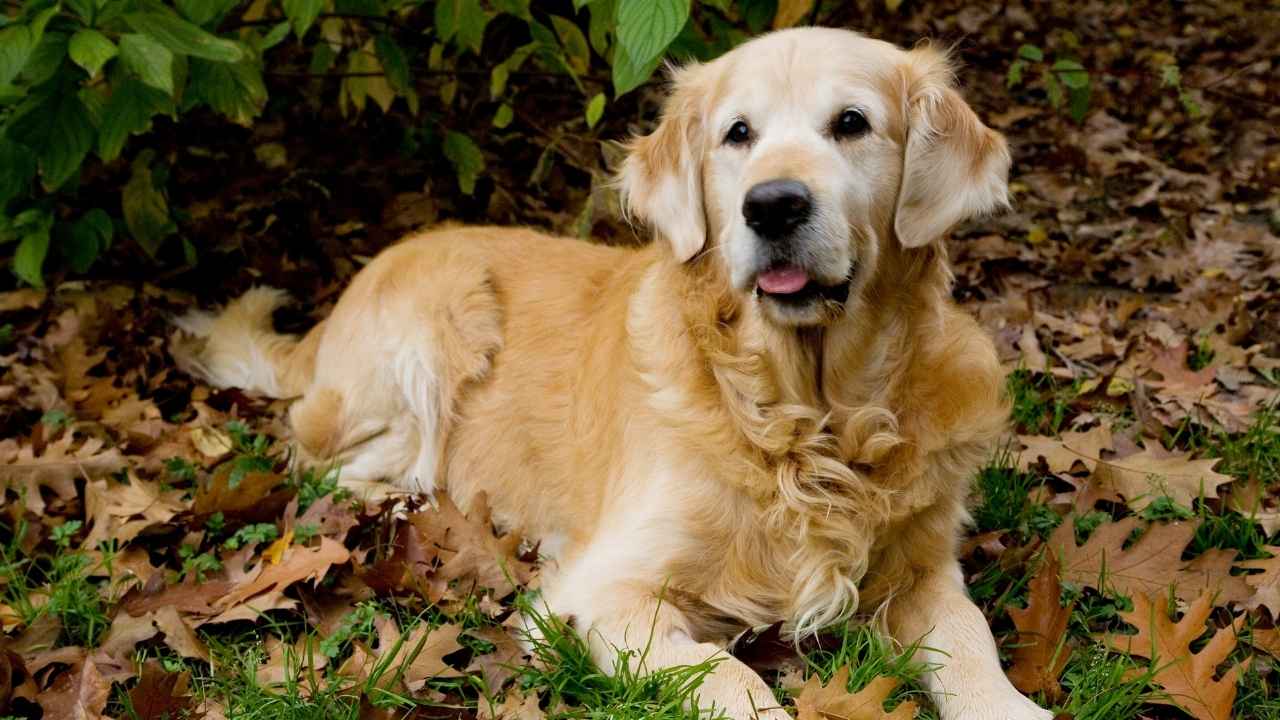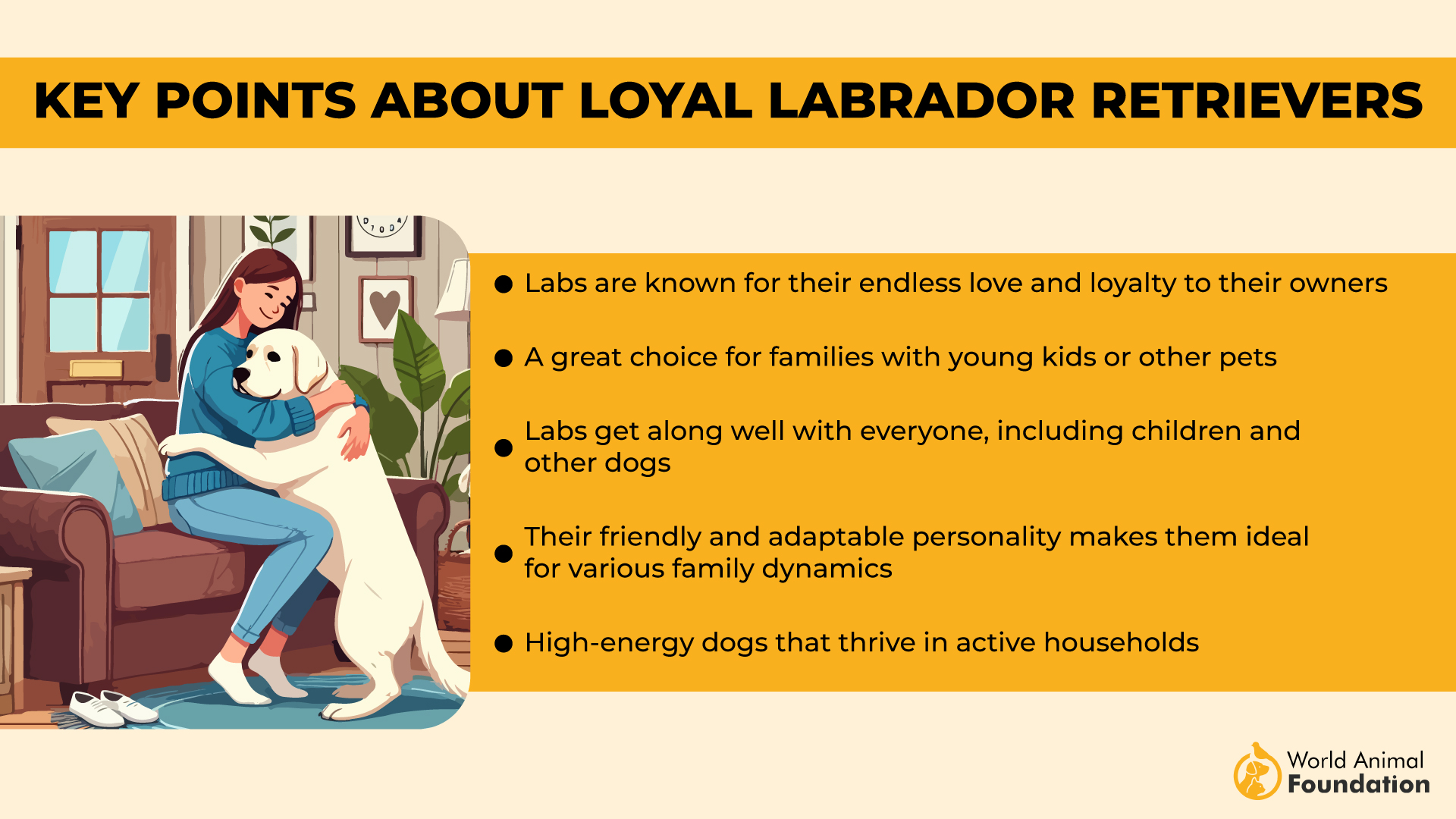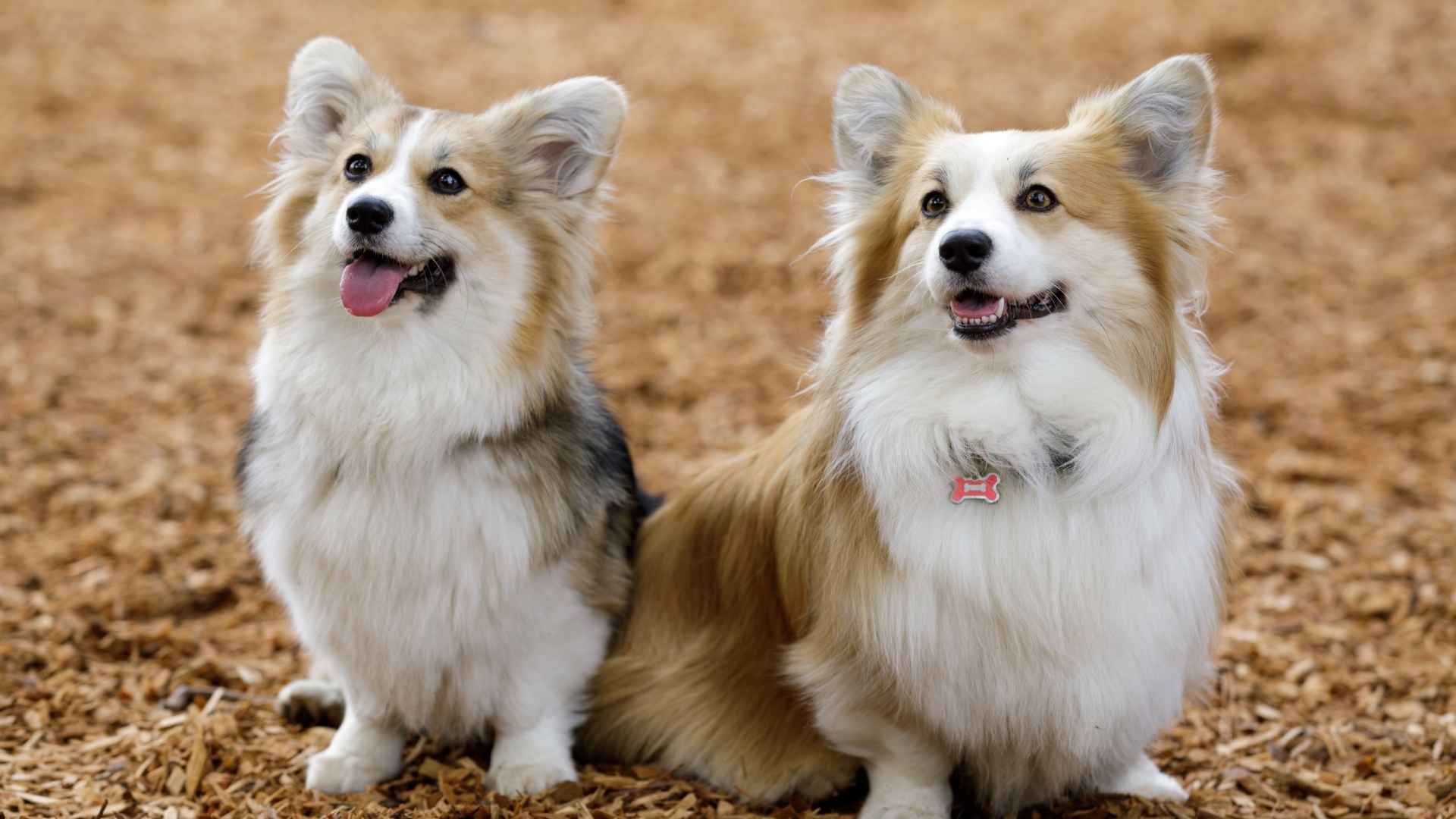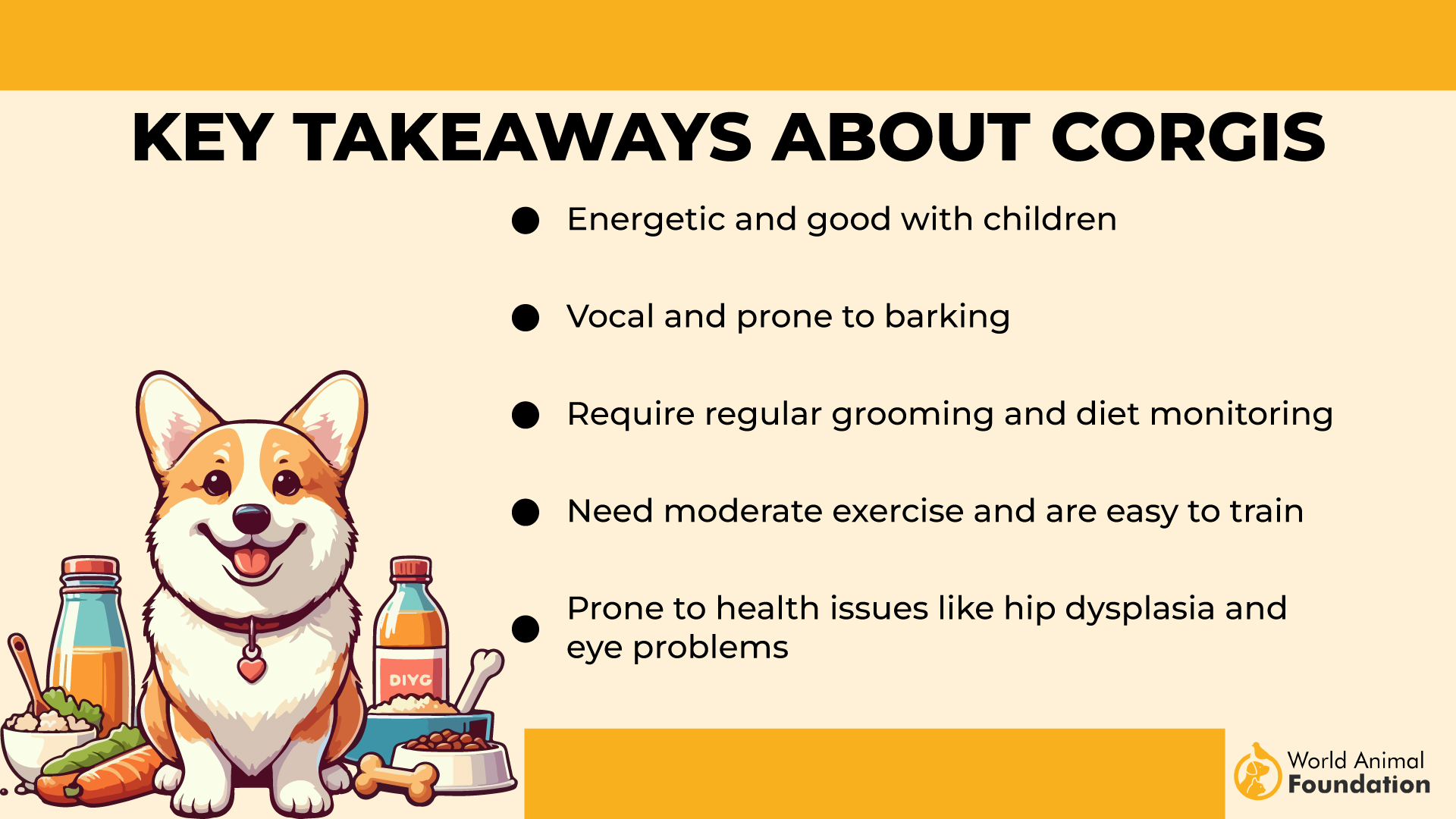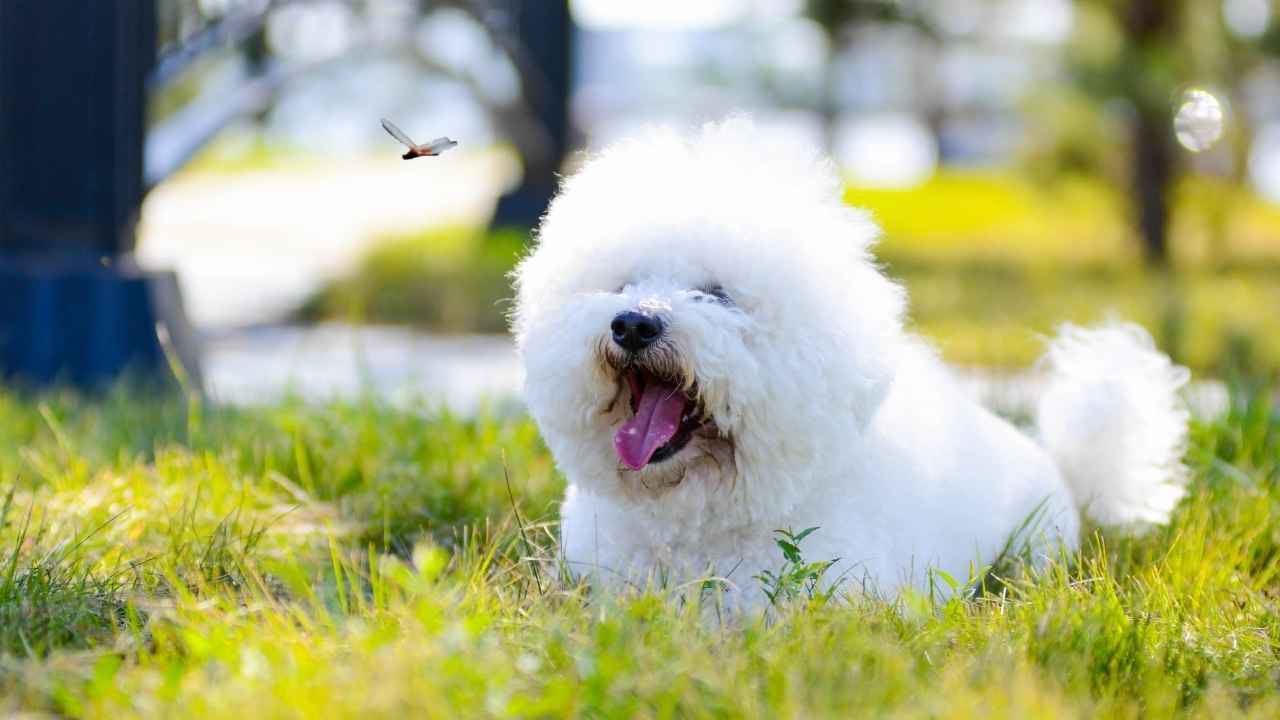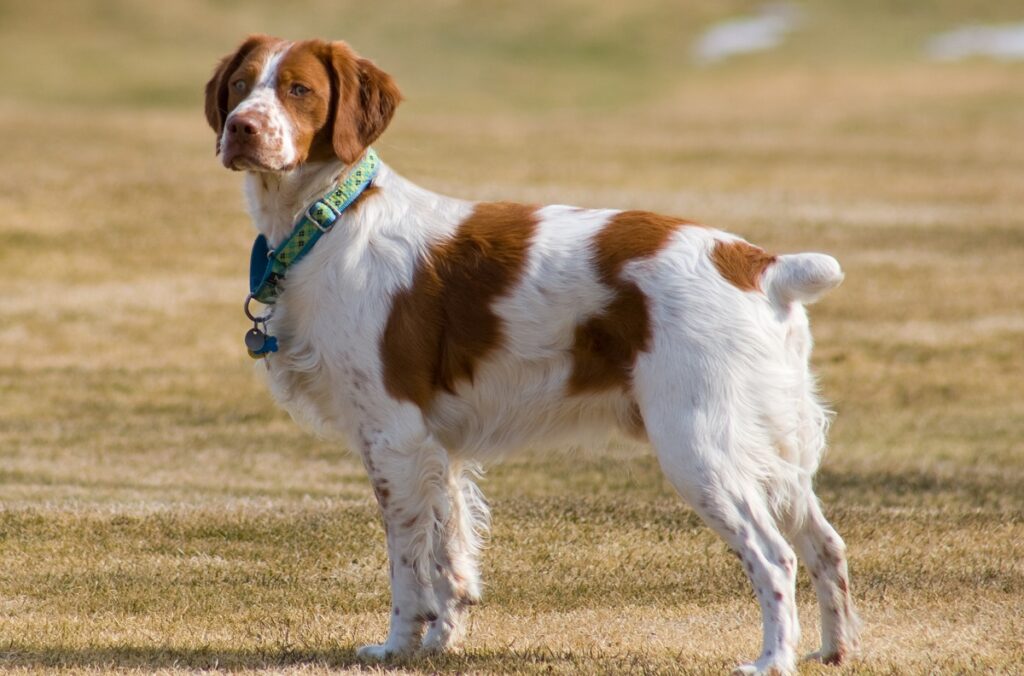Finding the perfect playmate for your beloved canine companion can be a joyous endeavor, especially when you know which breeds tend to get along famously with one another. Various dog breeds have temperaments and energy levels that mesh well, creating harmonious pairings that are both delightful and beneficial. Whether you’re considering adding another dog to your family or seeking a social buddy for your pup at the dog park, understanding compatibility among breeds can enhance the well-being of your furry friends. Discover the seven dog breeds renowned for their mutual compatibility and watch the magic of canine camaraderie unfold.
Finding the perfect balance in a multi-pet household starts with choosing dog breeds that naturally get along with others. Dog compatibility plays a vital role in ensuring a stress-free and harmonious home, especially for families with multiple pets.
Breeds like Golden Retrievers, Labrador Retrievers, and Shetland Sheepdogs are known for their friendly and adaptable nature, making them ideal for cohabitation. Understanding the unique traits of compatible dog breeds helps create an environment where pets can bond, thrive, and share joyful moments with their owners.
This article explores some of the most cooperative dog breeds and what makes them great companions for each other.
Dog Breeds That Are Most Compatible With Each Other
1. Shetland Sheepdog
The Shetland Sheepdog affectionately called the Sheltie, is one of the most amicable dog breeds due to its friendly and cooperative nature. According to the American Kennel Club (AKC), Shelties are intelligent and eager to please, making them easy to train and great companions for other pets. Their herding background contributes to their ability to coexist peacefully with other animals, including dogs.
These dogs thrive on mental stimulation and playtime, ensuring they bond well with other breeds that share similar energy levels. Shelties are highly adaptable and can get along with both larger and smaller breeds. Properly trained Shelties quickly learn to coexist in multi-pet households.
As gentle and affectionate dogs, Shelties are an excellent choice for families looking to add a second dog or introduce other pets into their homes. Their non-aggressive nature and sociability make them one of the best dog breeds for creating harmony.
Recommended breeds for cohabitation
They thrive alongside other energetic and social breeds such as the Border Collie, Australian Shepherd, and Collie. These breeds share a similar work ethic and playfulness. However, Brittany or Labrador Retriever, are also good companions for Shetland Sheepdogs, as they can engage in both physical and mental activities together.
2. Golden Retriever
Golden Retrievers are renowned for their kind and friendly temperament, making them one of the most harmonious dog breeds. They are highly sociable and tend to get along well with other dogs, regardless of breed or size. Their loyal and easygoing nature ensures a smooth integration into multi-pet households.
These dogs are excellent companions for both puppies and older dogs, thanks to their patient demeanor. Golden Retrievers thrive on social interactions and enjoy playtime with other animals. Their intelligence also allows them to adapt quickly to new dynamics.
Golden Retrievers’ affectionate and playful personalities make them perfect for households seeking a harmonious addition to their furry companions. They are truly one of the best dog breeds for multi-pet homes.
Recommended breeds for cohabitation
They typically get along well with breeds such as the Labrador Retriever, Beagle, and Cocker Spaniel, which share their playful and outgoing nature.
3. Labrador Retriever
Labrador Retrievers are another top choice for compatibility. These friendly and adaptable dogs are known for their ability to get along with other animals. Labs are highly sociable and tend to form strong bonds with both humans and other dogs.
Their playful energy and humble nature make them ideal companions for families with multiple pets. PetMD highlights that Labs are particularly good at reading other dogs’ cues, ensuring smoother interactions.
Whether you’re introducing a new puppy or pairing them with an older dog, Labrador Retrievers are among the most compatible dog breeds for multi-pet households. Their affectionate and cooperative nature ensures a peaceful coexistence.
Recommended breeds for cohabitation
They get along with a wide range of breeds such as Golden Retriever, Beagle, Pembroke Welsh Corgi, Shetland Sheepdog, and Brittany, as they share similar energy levels and enjoy physical activities like running and fetching.
4. Pembroke Welsh Corgi
Pembroke Welsh Corgis are friendly dog breeds known for their outgoing personalities and playful energy. As mentioned in Purina, Corgis are highly sociable and enjoy interacting with other dogs. Their herding instincts make them good at managing group dynamics, ensuring harmony in multi-pet homes.
These intelligent dogs thrive on positive reinforcement and regular playtime. Corgis are highly adaptable, making them suitable companions for a wide range of other dog breeds. Proper training and early socialization ensure they get along well with both smaller and larger breeds.
Corgis’ lively and affectionate nature makes them a delightful addition to households with multiple pets. Their ability to balance playfulness with calmness ensures they fit seamlessly into any household.
Recommended breeds for cohabitation
They make great companions for breeds that have similar social needs and friendly temperaments, such as the Shetland Sheepdog, Border Collie, Bichon Frise, and Golden Retriever.
5. Bichon Frise
The Bichon Frise is one of the most cordial dog breeds, known for its cheerful and affectionate personality. These small dogs are naturally sociable and get along well with other pets. Their playful energy and gentle demeanor make them ideal for households with multiple animals.
Bichons are highly adaptable and thrive on companionship, making them a great match for other sociable breeds. Britannica highlights that their cheerful and friendly nature allows them to get along well with other fellow dogs and pets.
With their minimal grooming needs and easygoing nature, Bichon Frises are a low-maintenance choice for families looking to add another dog. Their compatibility and affectionate disposition make them a popular choice for harmonious households.
Recommended breeds for cohabitation
They get along with breeds such as the Border Collie, Golden Retriever, and Beagle, which share a friendly and calm temperament.
6. Beagle
Beagles are friendly and sociable dogs that are well-suited for multi-pet homes. They have a pack-oriented nature, which makes them naturally inclined to get along with other fellow dogs. Their playful and curious demeanor ensures they bond well with a variety of breeds.
These hunting dogs are highly adaptable and enjoy interactive play sessions with other pets. Royal Canin notes that Beagles’ friendly temperament makes them one of the best dog breeds for households seeking compatibility. Early socialization and proper training help Beagles thrive in multi-pet environments.
Beagles’ outgoing personalities and love for companionship make them a wonderful choice for households with multiple dogs. Their ability to get along with others ensures a peaceful and joyful home.
Recommended breeds for cohabitation
The Golden Retriever, Labrador Retriever, and Brittany are excellent matches, as they share a playful and sociable nature.
7. Brittany
Brittanys are highly intelligent and energetic dogs that excel in multi-pet households. Their friendly and adaptable nature makes them one of the most cooperative dog breeds. These puppies thrive on social interactions and enjoy spending time with other resident dogs.
These dogs require regular exercise and mental stimulation, ensuring they bond well with active breeds. Brittanys’ soft temperament and eagerness to please make them a good match for both larger and smaller breeds.
With their sociable and affectionate personalities, Brittanys are an excellent choice for households looking to maintain harmony among their pets. Their ability to adapt and form strong bonds ensures they fit seamlessly into multi-pet homes.
Recommended breeds for cohabitation
Breeds like the Golden Retriever, Beagle, Pembroke Welsh Corgi, and Shetland Sheepdog are great companions as they have a friendly and social nature that complements Brittany’s lively and affectionate personality.
Conclusion
Creating a harmonious multi-pet household starts with selecting the most compatible dog breeds. Breeds like Golden Retrievers, Labrador Retrievers, and Shetland Sheepdogs shine for being the friendliest dogs. These breeds not only bond well with other canine companions but also bring joy and balance to their families.
Understanding the unique traits of each breed ensures smooth interactions and strong bonds among other pets. On the flip side, some breeds like Great Dane, Dachshund, and Rottweiler may struggle to adapt in multi-pet homes due to their strong territorial instincts or high prey drive.
However, with proper training and socialization, even these breeds can coexist successfully in the right environment. By prioritizing compatibility and providing positive reinforcement, you can ensure a household filled with love, wagging tails, and lasting friendships among your pets.
In exploring the compatibility of various dog breeds, it becomes evident that certain breeds exhibit harmonious interactions due to their temperaments, energy levels, and social tendencies. Breeds like the Labrador Retriever, Golden Retriever, and Beagle are known for their friendly and adaptable nature, making them suitable companions for each other and other breeds with similar dispositions. Additionally, breeds such as the Border Collie and Australian Shepherd thrive in active, engaged environments, complementing each other’s physical and mental stimulation needs. Ultimately, understanding these compatibilities can lead to happier, more cohesive multi-dog households, fostering fulfilling relationships between the dogs and their owners.

